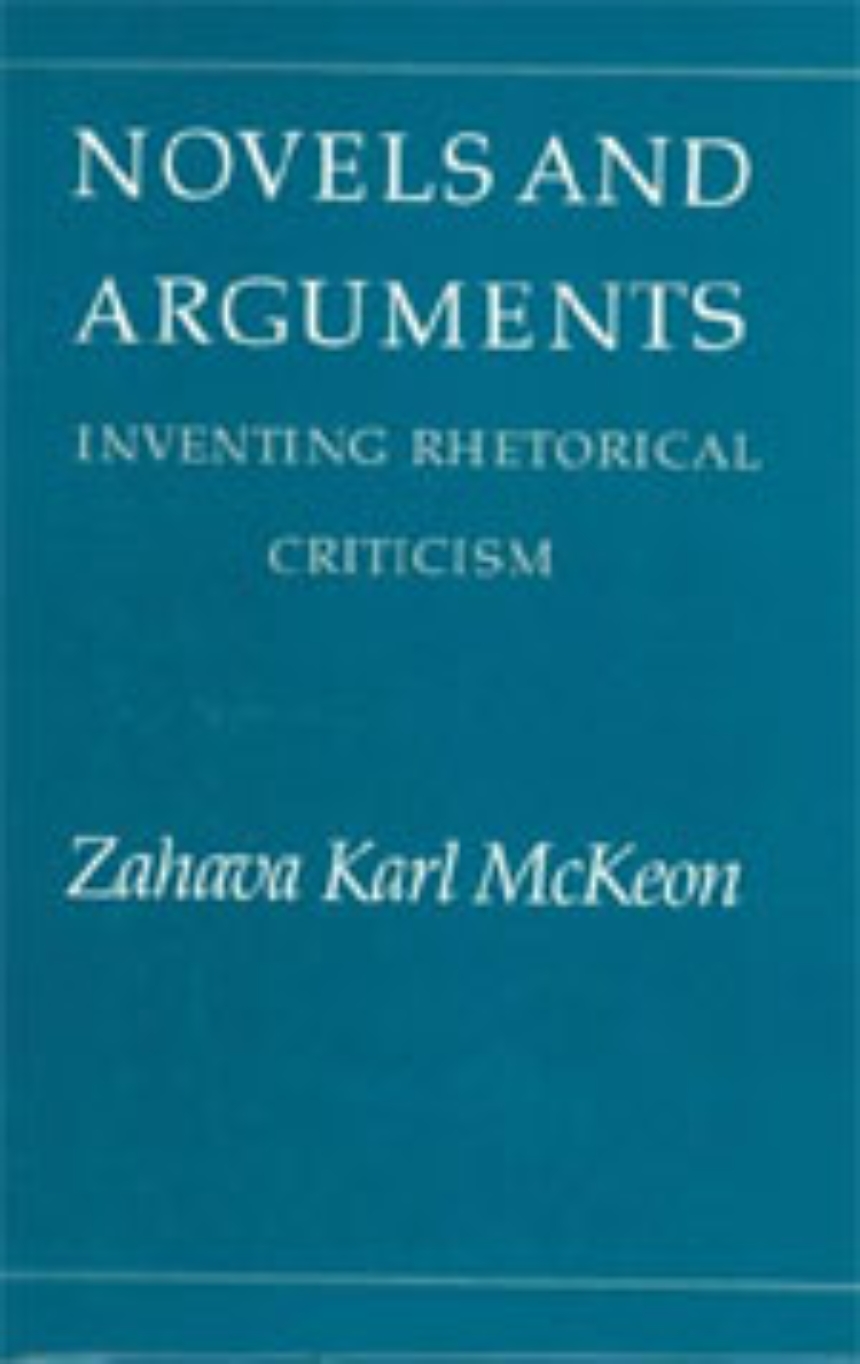Novels and Arguments
Inventing Rhetorical Criticism
In this absorbing study—the first comprehensive exploration of the rhetoric of the novel—Zahava Karl McKeon investigates the complex interrelations of critical poetics, grammars, dialectics, and rhetorics to devise a systematic means of dealing with the structure of prose works as communicative objects. Using the vocabulary and conceptual resources of Aristotle and Cicero, she pursues this exploration to discover the kinds of arguments that characterize novels, to find a way of distinguishing novels from other discursive wholes, and to discriminate different genres of the novel. McKeon’s arguments are supplemented by readings of a variety of texts, including the novels and stories of Gunter Grass, John Fowles, Robert Coover, and Flannery O’Connor.
270 pages | 6.00 x 9.00 | © 1982
Literature and Literary Criticism: General Criticism and Critical Theory
Table of Contents
Acknowledgments
Part One - The Form of Rhetorical Criticism
Modes of Discourse—Kinds of Rhetoric
1. Introduction
2. About Fictive Argument
3. Making Fictive Arguments
4. Making Discursive Wholes
5. Making Novels
Part Two - The Practice of Rhetorical Criticism
Invention, Discovery, Explication, Evaluation
Introduction: Fictive Argument and Novels
6. Novels—Conjectural and Definitive
7. Novels—Qualitative
8. Novels—Translative: A Discussion of Comparative Analysis
9. Conclusion
Notes
Index of Terms and Concepts
Index of Authors and Titles
Part One - The Form of Rhetorical Criticism
Modes of Discourse—Kinds of Rhetoric
1. Introduction
2. About Fictive Argument
3. Making Fictive Arguments
4. Making Discursive Wholes
5. Making Novels
Part Two - The Practice of Rhetorical Criticism
Invention, Discovery, Explication, Evaluation
Introduction: Fictive Argument and Novels
6. Novels—Conjectural and Definitive
7. Novels—Qualitative
8. Novels—Translative: A Discussion of Comparative Analysis
9. Conclusion
Notes
Index of Terms and Concepts
Index of Authors and Titles
